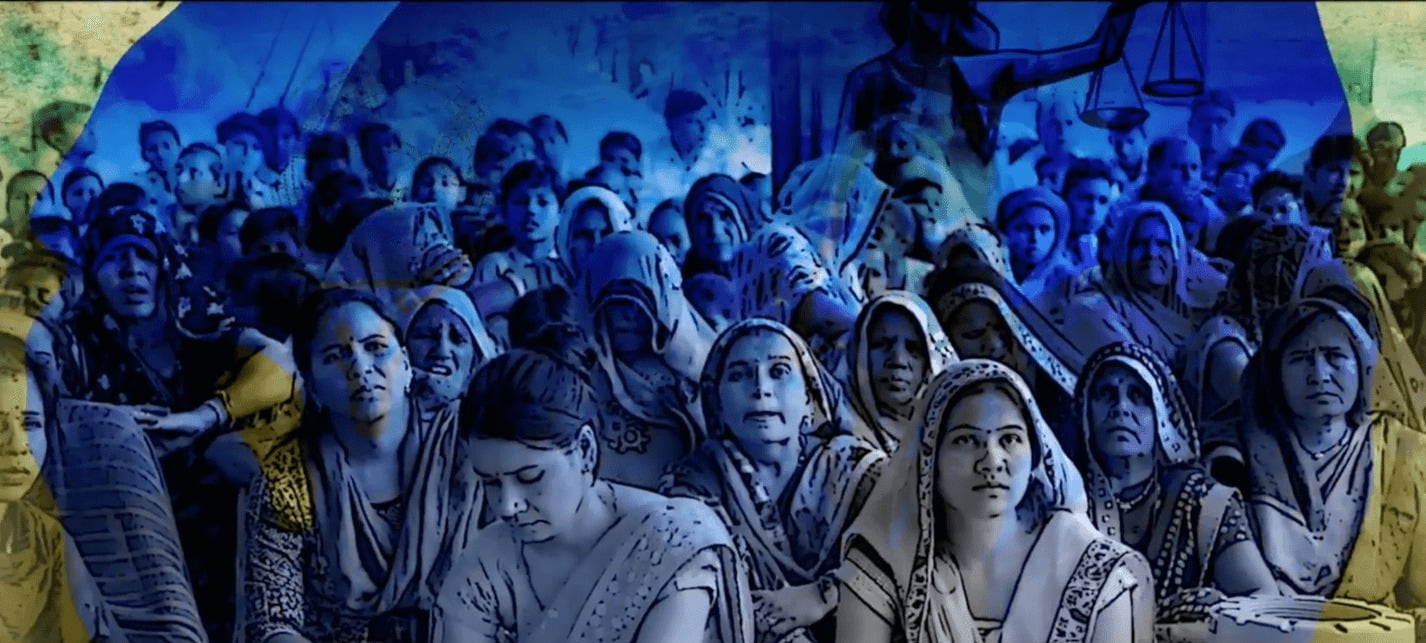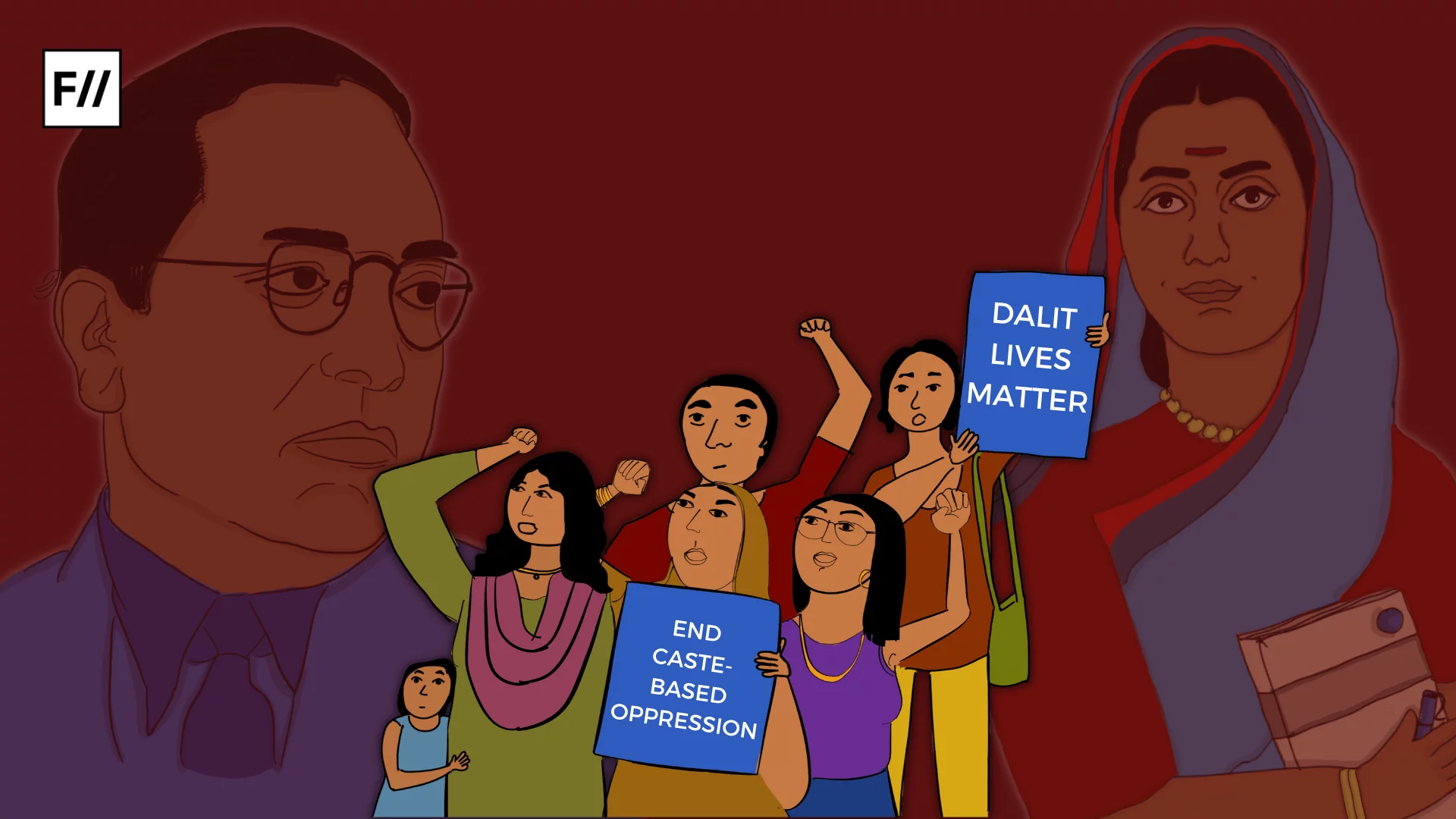“What is the use of such a government…“
“What better job does the government have than helping the poor of the country…“
“Dalits form 27% of the total population, they are still involved in demeaning jobs…“
These are the various accusations that the film directed by Priyadharsini and launched by All India Dalit Mahila Adhikar Manch (AIDMAM) begins with. It dismantles every belief any ‘caste-blind’ average Indian holds as it brings to notice not only the various crimes committed against Dalits, but the struggles of their everyday living as they lack basic needs such as sanitation and accommodation that has been conveniently unmet by the government as the video describes their living space as ‘barely liveable‘.
Harayana leads the country in being the most violent and unsafe state for Dalit women and girls. They are the most affected by caste-based sexual violence. Even if cases like rape are reported to the police, the police only make a show of ‘hitting’ the rapists and sending them away with a warning, as it happened in the case of Kajal in this film.
Kajal who had left for college never returned home which deeply worried her parents. A few people claimed to have seen her being taken in a car by some upper-caste men, who denied it tooth and nail. Even the police failed to take the case seriously. A few days later when Kajal’s father identified her body, the police even then refused to file the case under Scheduled Castes and the Scheduled Tribes (Prevention of Atrocities) Amendment Act, according to which the affected family has to be paid a compensation of minimum 4 lakhs.
Harayana leads the country in being the most violent and unsafe state for Dalit women and girls.
AIDMAM also notes that a strange new trend that has been set by the current government where they have begun to refuse to pay the compensation money for those cases that do manage to get filed under the SC/ST act. They claim to have limited funds and turn a blind eye to the suffering of the affected family, who cannot afford the long-standing cases in the court where the accused are more often than not acquitted of all crimes.
In another instance, when Kiran and Mamta tried to help two women escape a gang of upper-caste men who were harassing them, they ended up getting caught. While the two women escaped and tried to get help, Kiran and Mamta were brutally assaulted and raped by those men. The Dalit people who gathered to help the women were also attacked by the upper-caste men. Mamta who was then pregnant had gone into coma. In the video, Mamta who recovered from the incident, talks of how her treatment cost about 70,000 rupees. She raises the question of how she could possibly pay back the money when she could barely afford her daily bread.
AIDMAM has been supporting the survivors and their families through access to legal counsel, advocacy with authorities for compensation and protection. The road to justice is never easy, but the resilience and strength to fight and thrive with dignity is the only hope for the entire community.
AIDMAM has been supporting the survivors and their families through access to legal counsel, advocacy with authorities for compensation and protection.
They have being trying to expose the hypocrisy of the government and do not hold back in blaming the entire nation for it. When both the police administration and the criminal justice system wilfully neglects Dalits’ rights and makes their everyday survival problematic, what exactly does that speak of our government? The film also raises important questions about the state of Haryana and why things are particularly horrifying there as the number of crimes against Dalits, especially Dalit women and girls continue to increase.
Also read: In Conversation With Anju Singh From All India Dalit Mahila Adhikar Manch (AIDMAM)
This film is an initiative of AIDMAM to bring the stories of struggle, determination and strength of Dalit women leaders. The will to survive and make their stories heard in their own voices is important to put an end to the erasure of a marvellous history of resistance.
Please follow AIDMAM on Twitter, Facebook and Youtube.
About the author(s)
Amudha is an English graduate from Chennai. She is an introverted, green-loving, anxiety-ridden, obsessive Potterhead who doesn't believe in labels.




